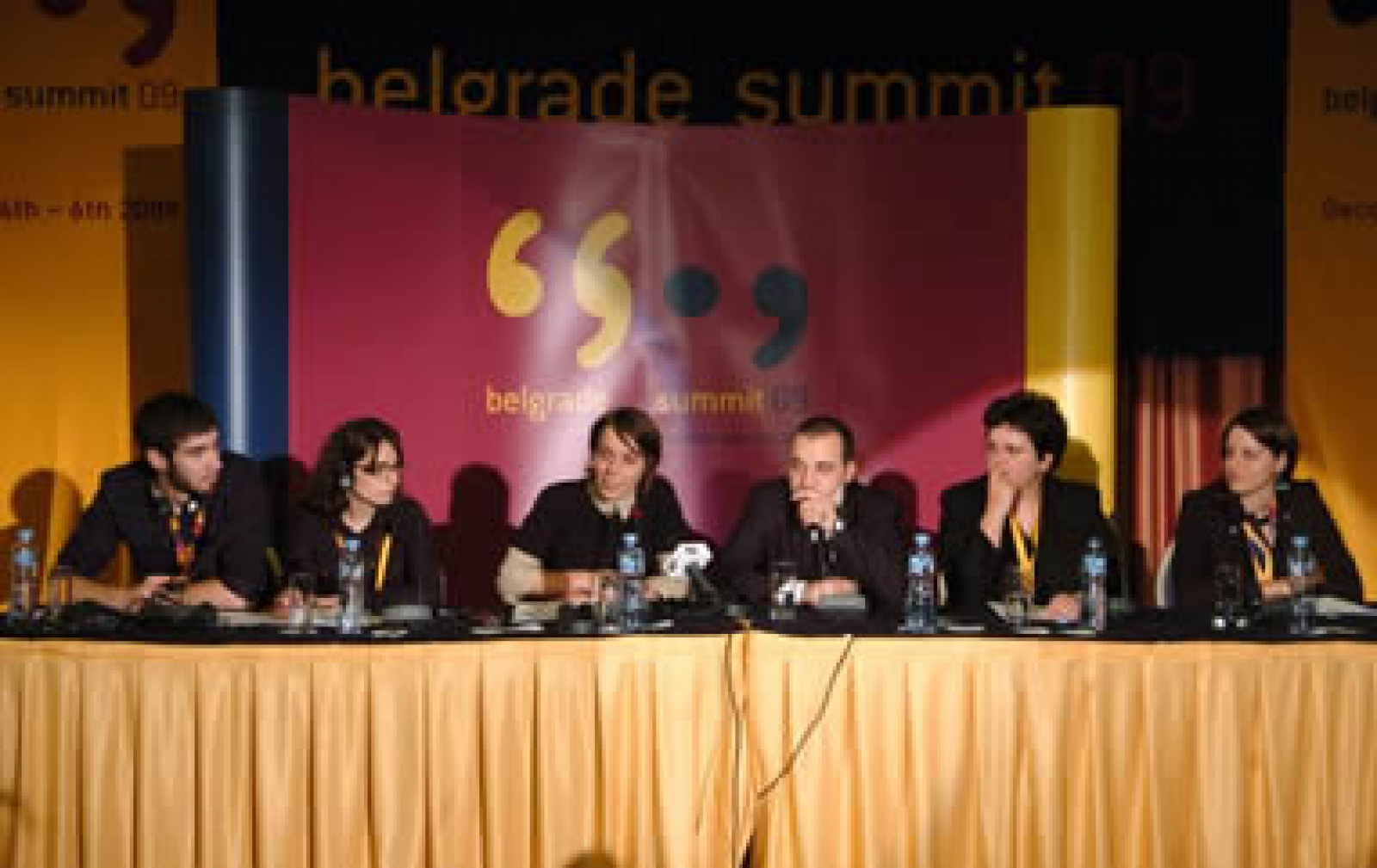
SHARE
With the goal of sustaining peace and encouraging cooperation to overcome the region’s past conflicts, more than 300 young political leaders from the Western Balkans and elsewhere, meeting in Serbia, issued “The Belgrade Declaration,” pledging to strengthen ties with their governments, promote new values and use new technologies to improve communication and understanding.
The attendees – from Bosnia-Herzegovina, Croatia, Kosovo, Macedonia, Montenegro and Serbia – called on the governments of the Western Balkan countries and the European Union (EU) to deal with war crimes, establish the rule of law, fight discrimination and xenophobia, and enable freedom of movement.
The declaration was the final step in a three-day summit, Dec. 4-6, organized by the Youth Initiative for Human Rights (YIHR) with funding from the National Endowment for Democracy (NED) and support from NDI and the International Republic Institute (IRI). YIHR is a Belgrade-based organization formed by young people in the region to promote the role of youth in democratization.
For NDI, the Belgrade meeting was the culmination of its USAID-funded Europe and Eurasia Young Political Leaders (EEYPL) program, designed to help the region’s new generation of young people, who came of age during the fall of communism and the wars in the former Yugoslavia, to develop links and cooperation. In 2005, the program launched the website www.democraticyouth.net, an online communications tool for political and civic activists who have created the Democratic Youth Network (DYNet). NDI made it possible for 20 EEYPL/DYNet members to attend the Belgrade event.
Participants in the conclave included young political leaders and civil society and new media activists as well as representatives from the EU. The program looked at how to strengthen democracy and human rights networks and create new ways for exchanging information, both regionally and globally. Among the featured speakers were Carl Gershman, president of the NED; Stephen B. Heintz, president of the Rockefeller Brothers Fund; H.E. Krister Bringéus, ambassador of Sweden to Serbia; Doris Pack, member of the European Parliament; and Pierre Mirel, European Commission director of DG Enlargement for the Western Balkans.
The goals of the conference were to increase communication and foster a network that connects politically active youth across Europe, in both EU and non-EU countries. Participants discussed, among other things, how to use new media technologies to network across borders.
In a mix of plenary sessions and working groups, participants considered the implications of growing up in a post-conflict environment, contrasting the Balkan experience with those of participants from other parts of the world. Attendees took part in working groups on such topics as “Dealing with the Past,” “Rule of Law: A Precondition for Responsible and Accountable Society,” and “Youth in Decision-making Processes: Role and Influence.” YIHR also introduced a proposed initiative to establish a Regional Commission for Truth-seeking and Truth-telling About War Crimes (RECOM).
Participants discussed how to bridge divided communities in Bosnia-Herzegovina and combat ethnic tensions in Serbia and Kosovo, which encouraged dialogue among participants from different ethnic groups and regions. Attendees also exchanged ideas about the advantages and shortcomings of various regional and national youth networks and the use of new technologies (web 2.0: blogs, Facebook, Twitter) as a means to connect youth leaders.
At the conclusion of the summit, participants composed and unanimously approved “The Belgrade Declaration.”
NDI has offices in Albania, Bosnia-Herzegovina, Bulgaria, Kosovo, Macedonia, Montenegro, Romania, Serbia and Slovakia promoting in-country youth initiatives as part of comprehensive democracy support programs.
Pictured above: Local coordinators for the Youth Initiative for Human Rights representing Croatia, Kosovo, Serbia, Montenegro and Bosnia-Herzegovina participate in a panel at the summit in Belgrade.
Published December 23, 2009


